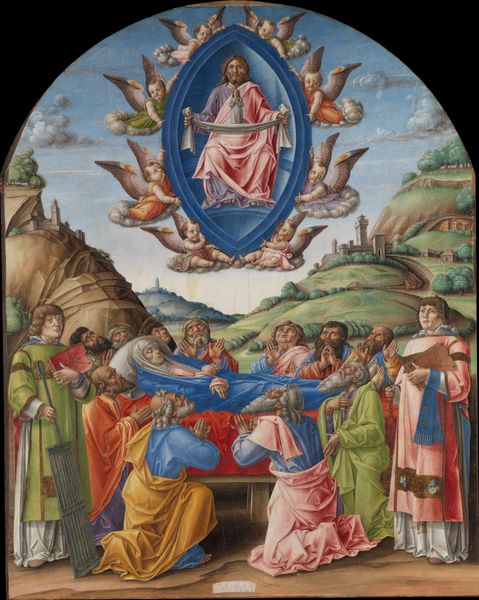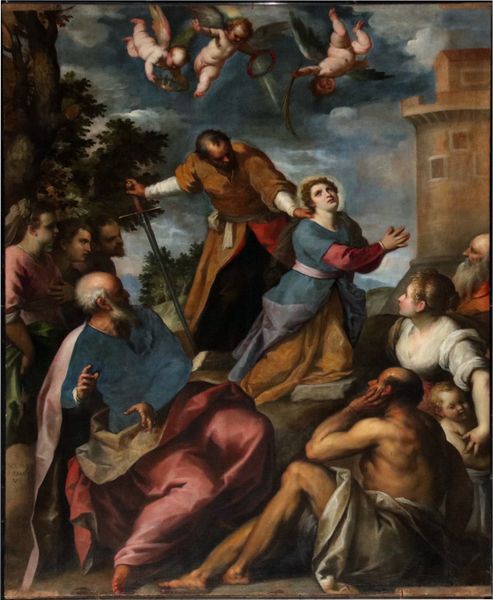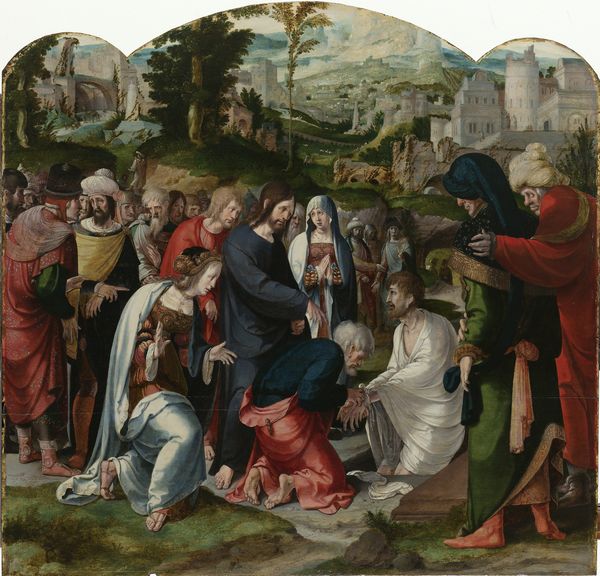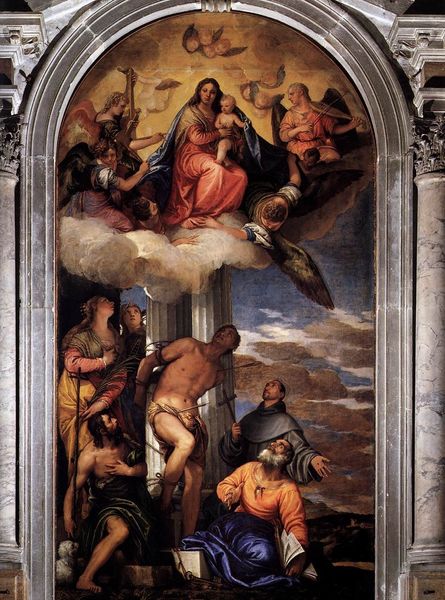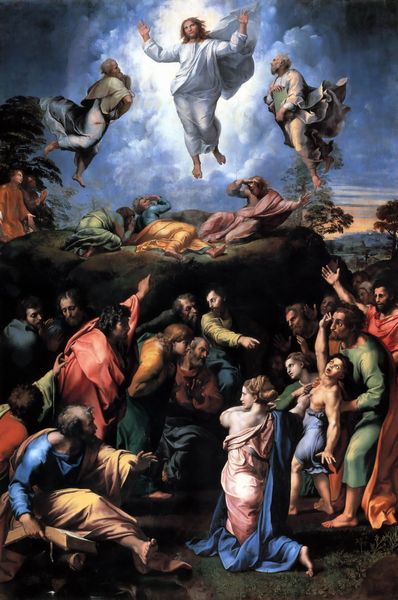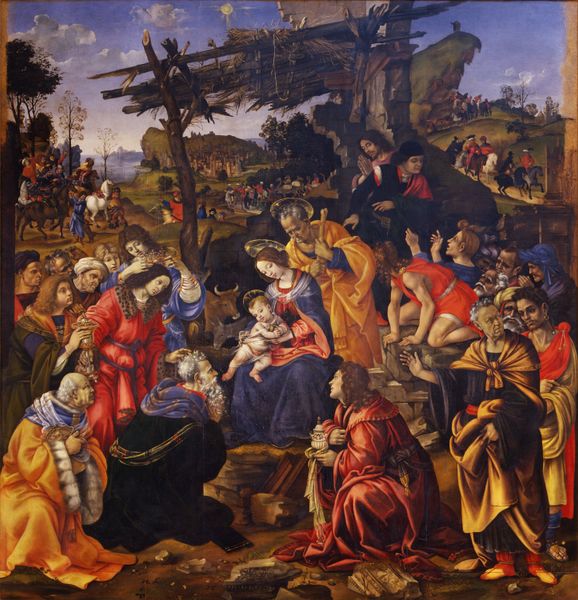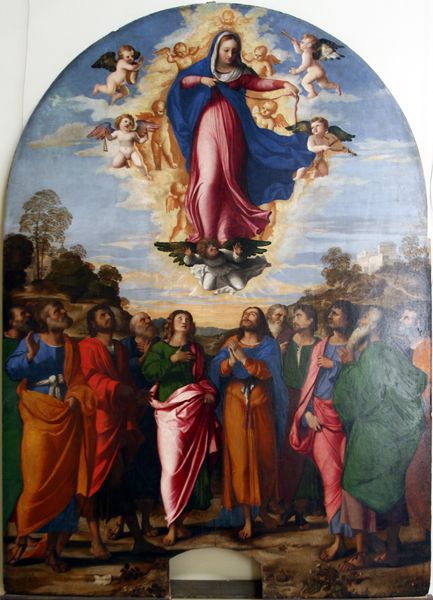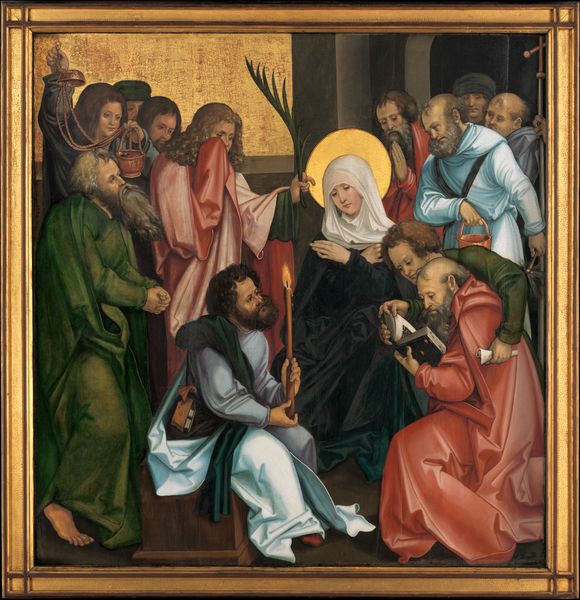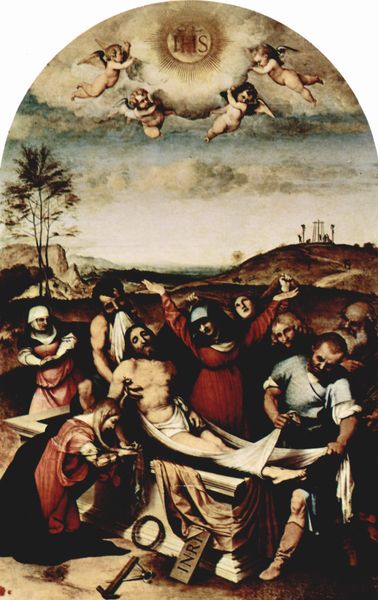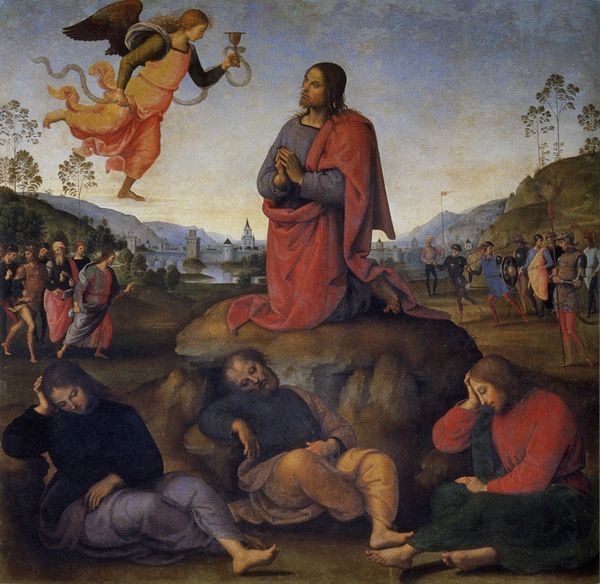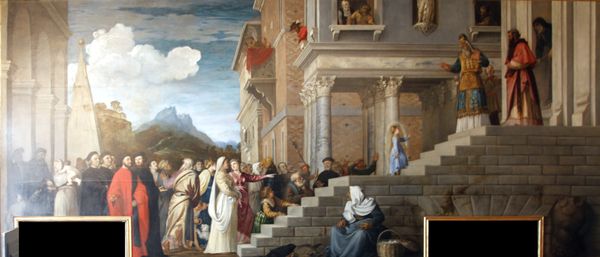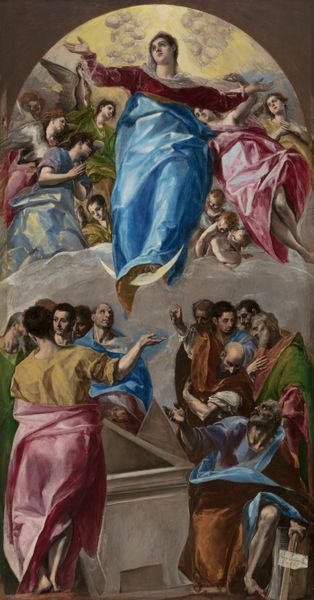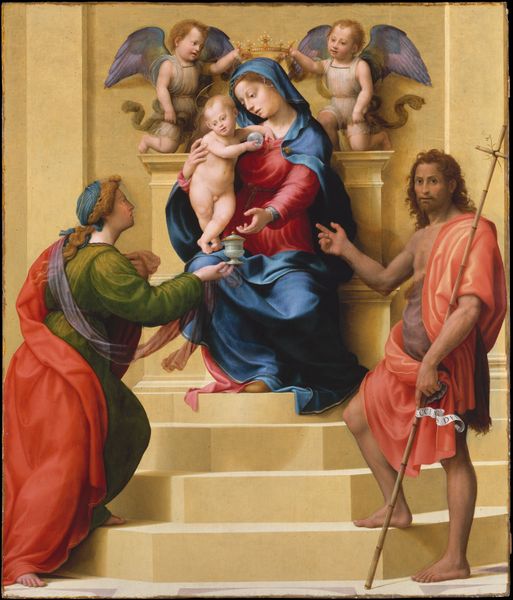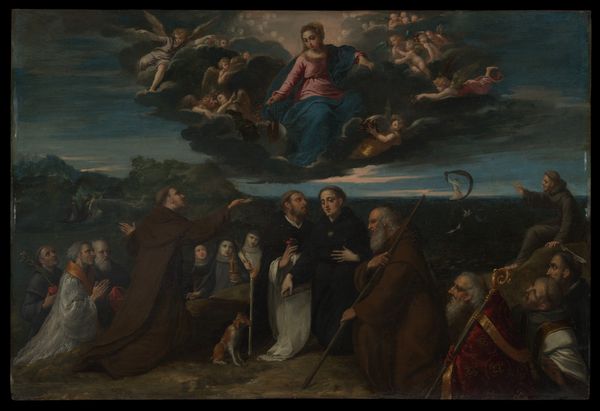
painting, oil-paint
#
venetian-painting
#
narrative-art
#
baroque
#
painting
#
oil-paint
#
figuration
#
oil painting
#
underpainting
#
painting painterly
#
history-painting
Copyright: Public domain
Palma il Giovane painted “St. Benedict welcomes his disciples, Maurus and Placidus” sometime before 1628, the year of his death. It shows Benedict, the founder of the Benedictine monastic order, receiving two young boys into his monastery. The painting illustrates themes of religious devotion and the importance of monastic life in 16th and 17th-century Italy. Commissioned during the Counter-Reformation, it reinforces traditional Catholic values and the role of the Church in education and spiritual guidance. The artist uses visual cues to convey the sanctity of the scene. Benedict is shown as a wise and benevolent figure, while angels in the upper register add a divine element. The landscape and the gathering crowd outside the monastery emphasize the communal and public nature of religious life. As art historians, we can use monastic archives, biographies of Benedict, and Counter-Reformation documents to understand the painting. The meaning of this artwork relies heavily on the socio-religious context in which it was created.
Comments
No comments
Be the first to comment and join the conversation on the ultimate creative platform.
